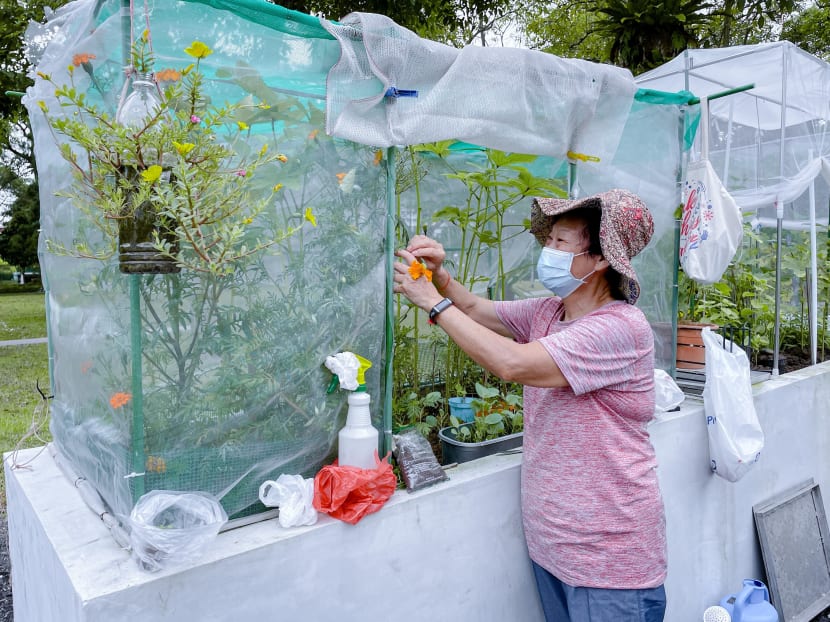To reignite kampung spirit, appoint chief gardeners in various estates, share dishes made from locally grown crops

The National Parks Board could name a chief gardener, or a team of pro gardeners, in each housing estate, who could nudge their neighbours to embrace gardening, suggests the writer.
One may assume that reduced interaction from the pandemic has curbed the kampung spirit among Singaporeans.
Government policies, however, have had the by-effect of rekindling it.
One of these policies is the “30 by 30” goal, where the Singapore Food Agency aims to have Singapore produce 30 per cent of its nutritional needs by 2030.
This goal encompasses initiatives by the National Parks Board (NParks), such as the provision of allotment gardens.
Allotment gardens are planter beds where residents can grow crops, fostering interactions in the community.
NParks has advised residents to use allotment gardens closest to their homes, as this would bring together like-minded people in the neighbourhood who enjoy gardening.
Inevitably, this will result in residents coming together, interacting and even watering one another’s plants, or sharing best practices on gardening.
Through helping one another, a sense of community and solidarity is created.
While allotment gardens are a stepping stone to promote interactions between residents, other tools can open the way for bonding, too.
For example, NParks has made available a variety of seed packets for budding gardeners, or those who are more experienced and have cultivated their green thumbs.
This could be an opportunity for gardeners with different skills to come together and learn from one another, making gardening a hobby that every resident, skilled or unskilled, can cultivate.
By creating opportunities for gardeners of varied skills to interact and learn, a kampung spirit can thrive in different estates around Singapore.
To take this kampung spirit to greater heights through community gardening, I have two suggestions.
First, in the immediate term, NParks could consider appointing a chief gardener, or a team of pro gardeners, in each estate, who could educate and encourage their neighbours to take up gardening.
This team could be made up of those who are well versed in gardening or have attended masterclasses by NParks to hone their skills.
They could hold classes in their estate and reach out to those who have received the seeds but are unsure of how to plant them.
Through education and encouragement, especially from a familiar face, more residents would be willing to take up gardening and make full use of the seeds distributed by NParks, or even apply for an allotment garden.
Such a climate will allow residents to experience the kampung spirit. Furthermore, it could help inculcate the value of growing crops for consumption in more residents.
In the long term, after the pandemic eases, community clubs could work with these teams of pro gardeners to organise events where residents can bring dishes that they have cooked using ingredients from the crops they have grown.
Given that the kampung spirit allows us to celebrate the amalgamation of our various cultures, this is also an opportunity for participants to cook ethnic dishes and celebrate one another’s culture.
Such communal activities will not only bring the community closer and instil a kampung spirit, but move Singapore closer to its 30 by 30 goal.
Have views on this issue or a news topic you care about? Send your letter to voices [at] mediacorp.com.sg with your full name, address and phone number.






